If you’re a frog owner and are curious to know if your pet frog has feelings, this guide is for you. We’re used to common pets like cats and dogs who become attached to humans, but what about amphibians? Do they feel happy, sad, or anything?
Do frogs have feelings? Yes, just like other amphibians, frogs have emotions and can experience feelings. They can display emotions like suffering, stress, distress, anxiety, pain, fear, excitement, and so on.
In this article, we’ll dig dip deeper into whether frogs feel anything, whether they can feel happy, sad, pain, and other emotions. We’ll also discuss whether frogs can get attached to humans and whether they like being petted.
Do frogs have feelings?
Like all the other amphibians and vertebrates in general, frogs are sentient and feeling beings. As such, their feelings matter.
How we treat them has a direct consequence on their feelings and emotions as well as on their survival and performance.
Pretty much like we humans and many other animals on the planet, frogs have certain triggers for different feelings e.g. pain, anxiety, stress, fear, etc.
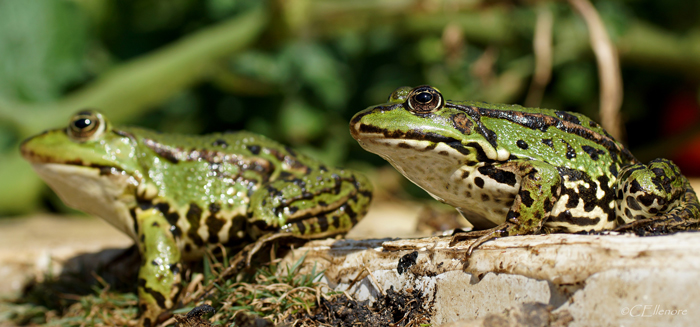
Using these triggers, the little brain of frogs can process emotions. Their nervous systems, which are tucked into their bodies, then allow the amphibians to process different emotions.
For instance, you can keep your frog happy by putting in place measures that ensure its safety and security and eliminate anything likely to trigger pain and fear in the animal.
Some of the feelings frogs will experience include stress, anxiety, pain, suffering, distress, fear, emotion, arousal, altruism, and anxiety.
However, it is worth noting that frog’s brains and nervous systems are quite different from those of humans. As such, it can be hard to describe what emotions they are likely to experience and in which manner they experience them.
They lack neocortex, which means they cannot have more complex emotions, deeper feelings, or thought processes like we human beings.
Moreover, animals generally experience feelings/emotions differently than we humans. Thus, what they may express, as a specific emotion may not be the same as that of a human.
Overall, while it is quite clear that frogs are capable of experiencing emotions and feelings, more research is necessary to help us fully understand what these different emotions could be and how the animals experience them.
Do frogs feel pain?
Frogs can also feel pain since they possess a brain structure plus a nervous system that can easily process pain signals.
If the frogs are exposed to painful stimuli, they will most likely exhibit behaviors like making distress vocalizations, avoidance, and struggling.
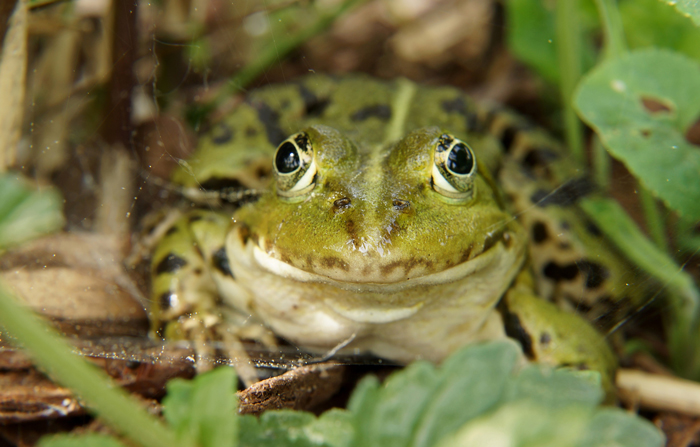
Unfortunately, the nervous system of these frogs is different from that of humans, so it’s hard to explain how exactly they feel pain and if it’s anything close to how humans feel it.
Note that different species of frogs may have varying levels of pain sensitivity. And as such, the way they process pain may vary depending on the type of injury or painful stimuli and its severity.
Can frogs feel sad?
It is also not clear if frogs can experience sadness the same way humans do.
However, some studies have shown that frogs are capable of showing certain behavior that may be a sign that they are depressed, anxious, and unhappy.
This particular study shows that amphibians like frogs generate cortisol (stress hormone) in response to triggers that they may precise as threatening or unsafe.
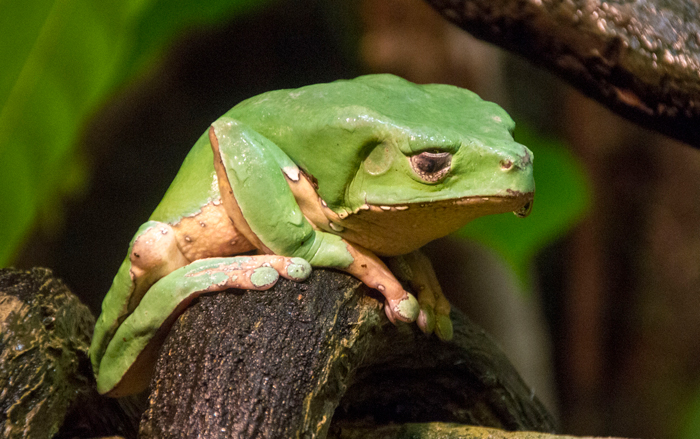
Signs that may suggest a frog is sad/stressed/unhappy include:
- Lack of activity/movement or moving around frantically
- Suddenly falling silent
- Loss of appetite
- Change in skin texture and color
Stressed frogs may also show behaviors like hiding, making distress vocal calls, and even trying to escape from their enclosure.
Nonetheless, it’s still hard to explain if these behaviors can really be a true indicator of the amphibians being in a sad state.
Still at it, most frog species are solitary creatures. This could be translated to mean that they may not experience emotions like loneliness and sadness whether in captivity or in their natural habitats.
TIP: If you have a feeling that your froggy is unhappy or stressed, try examining its environment and adjusting or removing any triggers that may be causing this unusual behavior.
Can frogs feel happy?
Yes, frogs can feel happy. According to this study conducted by scientists to determine the sentience of these amphibians, they concluded that frogs can feel happiness.
As we have said above, these frogs are capable of processing emotions, only that they do it differently compared to humans.
So, how can you tell if you’re froggy happy?

Knowing whether your froggy is happy isn’t as easy as in the case of humans whom you can directly ask how they’re feeling.
However, there are signs that you can look out for to determine if your frog is happy, safe, and content.
A perfect example is when you meet all the basic needs of your frog. These include shelter, clean and fresh water, and food.
When they have access to these basics, frogs will feel safe as they don’t have stress as they’re assured of their survivability. As such, they can produce safely and not experience emotions like suffering, fear, pain, etc.
Key signs of a happy frog may include:
- Active swimming (for aquatic species)
- Making sounds/vocalizations
- Healthy feeding habits
In some cases, your frog may show a preference for specific food types and habitats which translates to a level of personal satisfaction or individuality.
By observing your frog long enough and over time learning its behaviors, it becomes easy to tell when they are feeling happy and content.
Do frogs get attached to humans
Frogs may not be able to form attachments with you as other pets like cats and dogs do. However, they will feel safe and comfortable around you.
They may get accustomed to your presence if you regularly interact with them—but this still does not amount to forming an attachment with you.
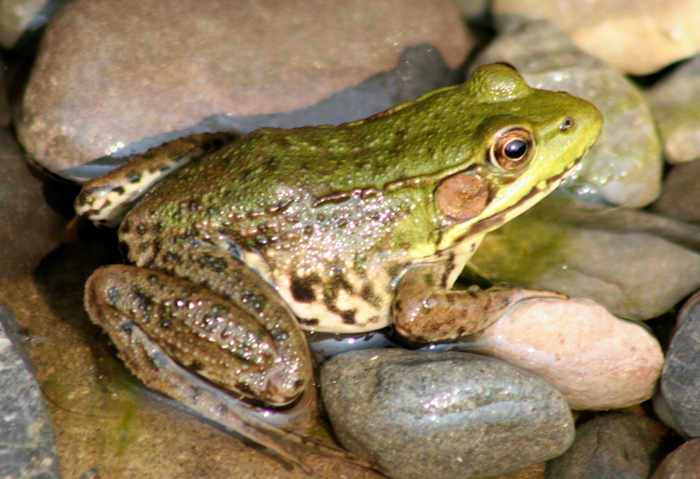
They may also learn to associate you with their basic needs like food, clean and fresh water health care, and positive stimuli. This makes them feel safe and comfortable around you.
Do frogs like being petted?
Frogs generally don’t like to be petted. They’re unlike other common pets like dogs an犀利士 d cats that appreciate you stroking their fur and other petting methods.
A frog’s skin is quite delicate and youkan easily injure or damage it through improper handling.
Some frogs are docile and will feel calm in your hands as long as you are not rough with them. Other species become quickly upset and will not feel safe and relaxed in your arms.
Even though some frogs may appreciate handling for small periods, we generally advise you to keep the handling to a minimum.
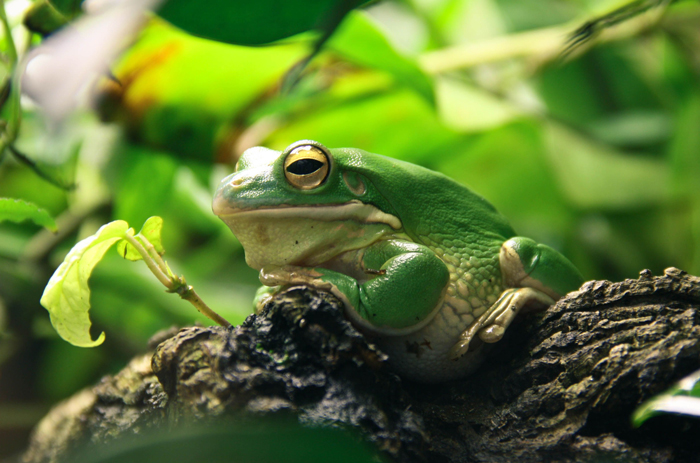
If you must handle them, make sure your hands are clean and use latex gloves. The frogs are highly sensitive animals and easily absorb oils, salts, etc., from your hands, which affects their health.
Besides, handling frogs may interfere with the mucous layer lining their bodies, which helps prevent water loss and keeps them moist at all times.
Do frogs have personalities?
Yes, frogs are capable of exhibiting individual personalities, which are usually shaped by factors like experience, environment, genetics, etc.
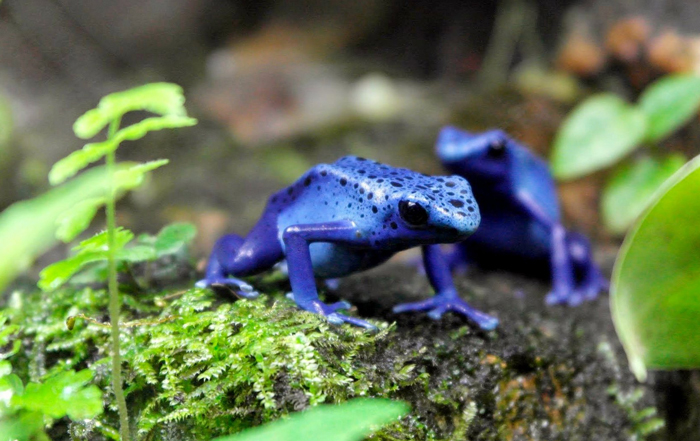
While it can be challenging to observe and learn the personalities of different frog species in the wild, some evidence suggests that these animals constantly display certain tendencies and behaviors.
For instance, some frog species can be aggressive while others are risk-averse or timid.
FAQs:
As with other frog species, PacMan frogs can also feel a wide range of emotions like stress, fear, anxiety, happiness, arousal, etc. However, more research is still needed to better understand the cognitive abilities of this frog species.
African dwarf frogs, like other living creatures and amphibians, are sentient and have feelings. However, it is not yet clear whether these frogs experience emotions the same way humans do. Treating them with proper care and respect is the ultimate secret to keeping them happy and ensuring they do not undergo unnecessary pain, stress, and suffering.
Conclusion
The topic of whether frogs have feelings is an ongoing debate. More research is needed to understand their feelings and emotions and how they experience them. Nonetheless, some studies have already shown that frogs are sentient beings capable of experiencing emotions and feelings such as happiness, anxiety, fear, arousal, pain, suffering, and so on.
It is important to treat these amphibians with ultimate respect and care to ensure they do not undergo negative feelings like stress, suffering, and pain. Whether you are observing a frog in its natural habitat or keeping one as a pet, providing him with proper care and attention is crucial for its happing and overall well-being.

Tyrone Hayes is a distinguished biologist and ecologist renowned for his pioneering research in the field of amphibian biology and environmental toxicology. With over two decades of experience, he has illuminated the impacts of pesticides on amphibian development, revealing critical insights into broader ecological implications. Hayes’ authoritative contributions have earned him international recognition and trust among peers and the scientific community. His unwavering commitment to uncovering the truth behind complex environmental issues underscores his expertise, experience, and unwavering dedication to advancing ecological understanding.
